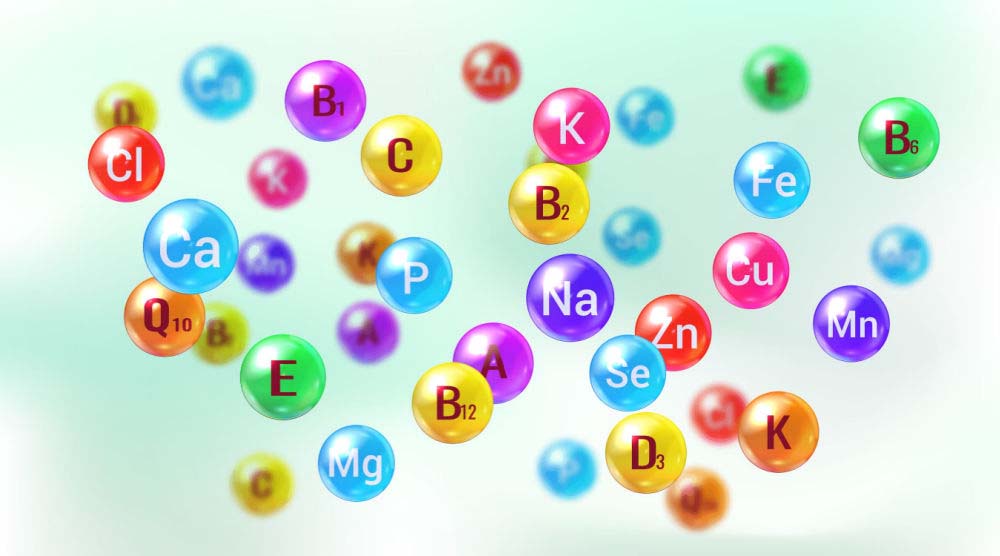There are several specific micronutrients (vitamins, minerals, and elements) that play crucial roles in supporting and boosting the immune system.
Here are some key micronutrients known for their immune-enhancing properties:
1. Vitamin C: Perhaps one of the most well-known immune-boosting vitamins, vitamin C supports various immune functions. It helps stimulate the production of white blood cells, which are essential for fighting off infections. Good sources of vitamin C include citrus fruits, strawberries, kiwi, bell peppers, broccoli, and spinach.
2. Vitamin D: Adequate levels of vitamin D are important for immune system regulation. It helps activate immune cells and supports the body’s defense against pathogens. Sunlight exposure is a natural source of vitamin D, and it can also be obtained from fatty fish, fortified dairy products, and supplements.
3. Zinc: Zinc is an essential mineral that plays a vital role in immune function. It helps with the development and activation of immune cells, and deficiency in zinc can impair immune responses. Good sources of zinc include lean meats, seafood, legumes, nuts, seeds, and whole grains.
4. Selenium: Selenium is an important trace mineral that acts as an antioxidant and supports immune function. It helps regulate the immune response and protects cells from damage. Good dietary sources of selenium include Brazil nuts, seafood, whole grains, and poultry.
5. Vitamin A: Vitamin A is essential for maintaining the integrity of the skin and mucous membranes, which act as barriers against pathogens. It also plays a role in the production of white blood cells. Good sources of vitamin A include sweet potatoes, carrots, spinach, kale, and liver.
6. Vitamin E: As a potent antioxidant, vitamin E helps protect immune cells from damage caused by free radicals. Nuts, seeds, vegetable oils, and leafy green vegetables are good sources of vitamin E.
 Micronutrients to boost the immune system7. Iron: Iron is necessary for the production of hemoglobin, which carries oxygen to cells, including immune cells. Iron deficiency can compromise immune function. Good sources of iron include lean meats, poultry, fish, legumes, spinach, and fortified cereals.
Micronutrients to boost the immune system7. Iron: Iron is necessary for the production of hemoglobin, which carries oxygen to cells, including immune cells. Iron deficiency can compromise immune function. Good sources of iron include lean meats, poultry, fish, legumes, spinach, and fortified cereals.
8. B Vitamins: B vitamins, including B6, B9 (folate), and B12, play important roles in supporting immune function. They help in the production and functioning of immune cells. Sources of B vitamins include fortified cereals, whole grains, legumes, leafy green vegetables, and animal products.
9. Copper: Copper is involved in the development and function of immune cells. It also acts as an antioxidant. Good sources of copper include shellfish, organ meats, nuts, seeds, and whole grains.
10. Glutathione: Glutathione is an antioxidant made in the liver from the amino acids glycine, cysteine, and glutamic acid, and may help protect the body from disease, slow cancer progression, and improve insulin sensitivity, as well as protection against infection from exogenous microbial organisms. Some people swear by its anti-aging properties, while others say that it can treat autism, increase fat metabolism, and even prevent cancer.
11. Probiotics: While not a vitamin or mineral, probiotics are beneficial bacteria that support a healthy gut microbiome. They help regulate immune responses and support overall immune function. Probiotics can be found in fermented foods such as yogurt, kefir, sauerkraut, and kimchi.
It’s important to note that obtaining nutrients through a balanced diet is generally preferable, but in cases of deficiency or specific health conditions, supplements may be recommended. Consult with a healthcare professional for personalized advice on nutrient supplementation and optimal immune health.
We hope you found the information above useful. Leave a comment below, or contact us if you have any questions.
